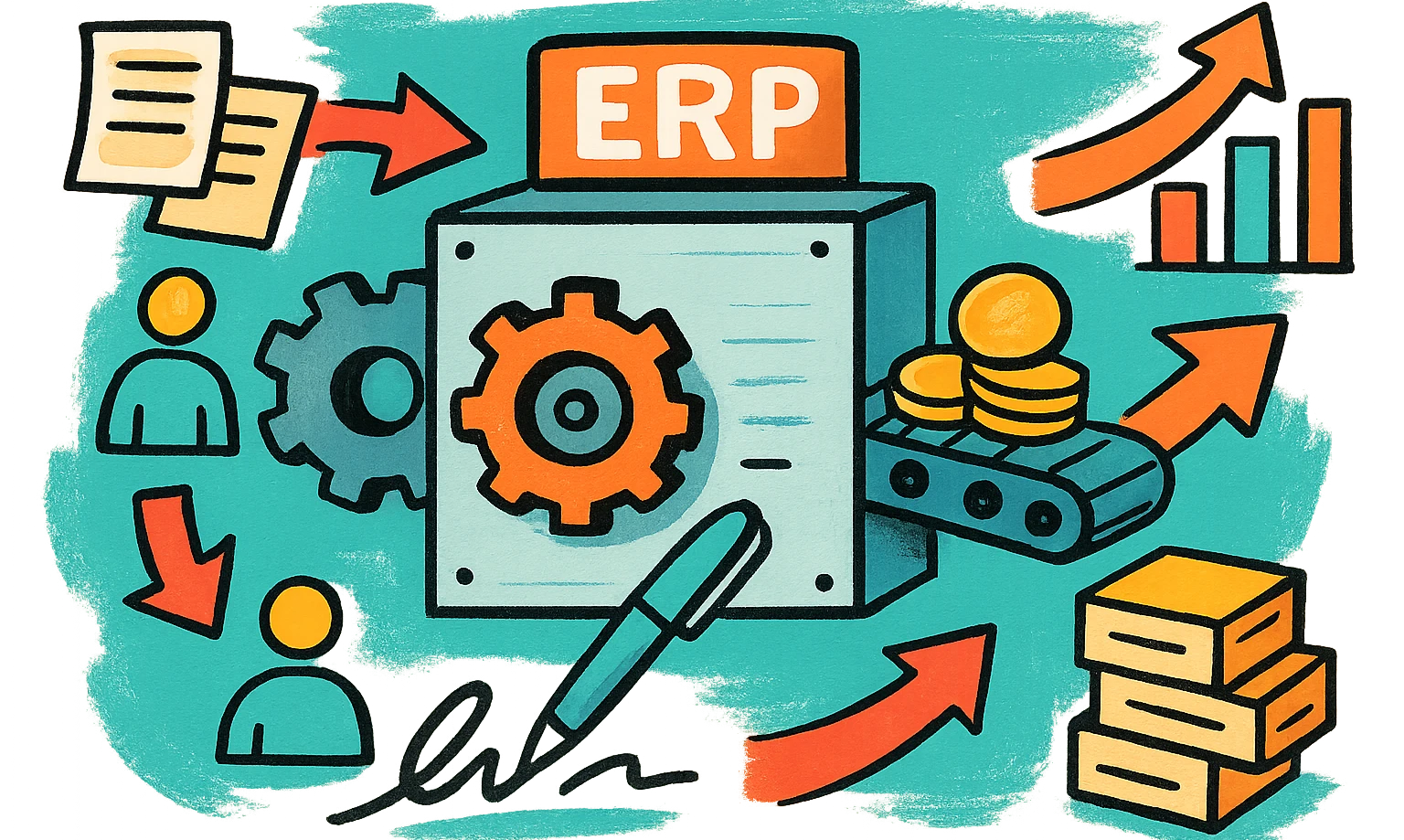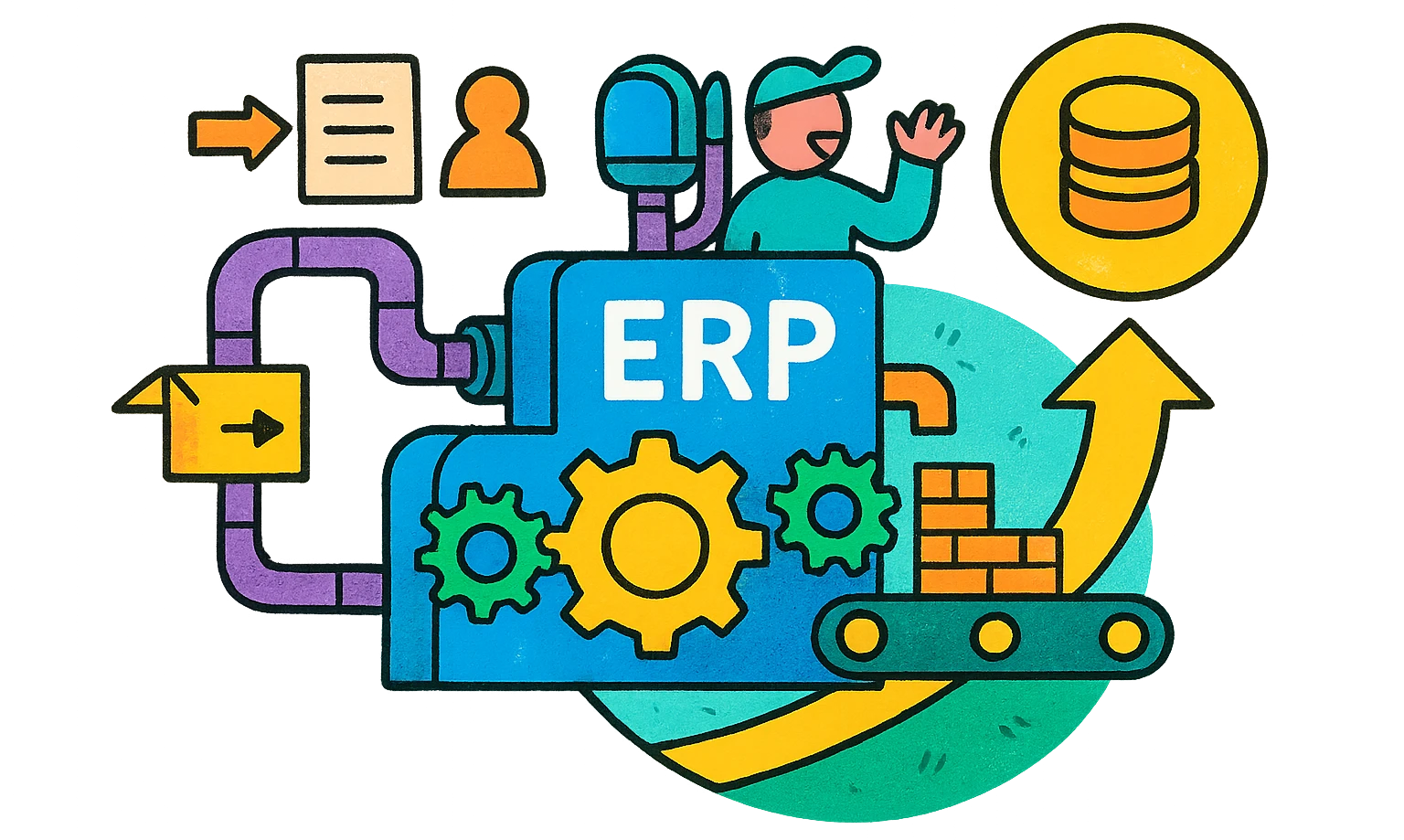What is ERP and Does It Have a Place in My Company?

The purpose of this type of system is to help organizations manage their resources in a way that yields optimal financial results. By resources, we mainly mean finances and goods/materials. That is why the main focus of ERP systems is finance, production, and warehouse management. There are also specializations within ERP systems—those aimed at manufacturing (including serial production and made-to-order subdivisions), trade, and project management. However, ERP is far from the only type of software used for process management in a company. Another well-known abbreviation is CRM (also known as a CRM system) — Customer Relationship Management. This type of system "answers" for the teams interacting with customers—marketing, salespeople, service, and support. Additionally, there are PRM – Partners Relationship Management, MES, DMS, PLM, QMS, BI, and others.

Do I Need an ERP System?
Assuming that the above paragraph has tried to give a concrete answer to the first question — What is ERP — let's move on to the second topic: "Do I need an ERP system?" We have noted that, much like the owls in Twin Peaks, ERP systems are not exactly what they seem.
Therefore, we recommend putting your business needs first. What do you want to achieve? Which departments' work do you want to optimize? What do you expect to gain as saved time, effort, or materials? Equally important is the question of whether you are organizationally ready to implement an integrated information system.
At least until the widespread arrival of Artificial Intelligence agents (at the time of writing this article, this has not yet happened), the operation of any information system depends on the accurate entry of data into it. This means that an administrative capacity is required to operate such a system. If in your company, you struggle even to maintain basic Excel tables because there is always other work to be done, using software probably won't work. You will need to expand the team or delegate the work with the system to a colleague whose main task will be to manage it.
Another specificity of using such systems comes from the interconnectedness between company departments. When working with several different systems or Excel/paper, errors made in one department can be ignored or corrected by another.
When you use ERP or other complex information systems, a mistake made in one place immediately affects the work of other departments. Rarely are there happy faces when this fact becomes apparent during work, especially in the accounting department. In these cases, the question "What is ERP" has a much more colorful answer.
Two Things to Keep in Mind When You Know the Answer to "What is ERP?"
With all that said, we do not want to discourage you from searching for your new system. Just to draw your attention to two important facts.
First, you will need to choose the right type of software for you. Second, sometimes an organization needs to reach a certain level to benefit from the implementation of a complex information system.
As the saying goes, "You must learn to walk before you start running." If everything so far has been done on paper, it would be too risky to integrate a complex and heavy information system.
In most cases, it simply will not start working. There are options for what to do in these situations, and the answer usually lies in phased implementation.
Conclusion
We leave you with more questions than answers? You still cannot answer the question "What is ERP and does it have a place in my company?" To answer this question, you do not need to know any abbreviations or speak the professional jargon of software companies.
Rather, you need to state your business goals simply and clearly (we emphasize this because it is really important, yet we rarely receive this information).
Ideally, you will find colleagues with whom you can sit down, discuss your needs thoroughly and carefully, and they will offer you a solution that satisfies them. Whether it's ERP, some other type of software, or a combination of several interconnected solutions.
Do you need such a conversation partner? We, the team at nZoom, are here for you. Book a call with us!
Author: Julian Calderon
